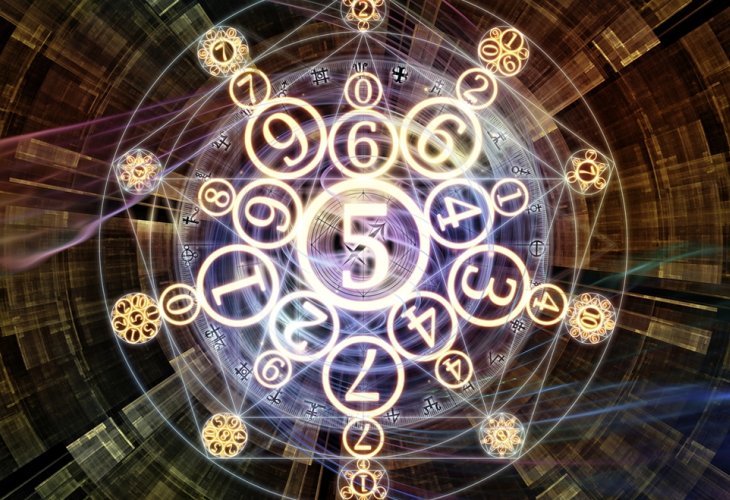Kabbalah and Mysticism
Numerology vs. Jewish Faith: What Judaism Really Says About Predicting the Future
Why Torah scholars reject modern numerology, the difference between mystical gematria and fortune-telling, and how Judaism teaches that faith and free will shape your destiny
 (Photo: shutterstock)
(Photo: shutterstock)1. What Is Numerology?
Numerology is a system in which practitioners analyze a person’s name and date of birth to reveal insights about their character, destiny, and life path. According to numerologists, this analysis can identify an individual’s strengths, skills, life purpose, inner conflicts, and emotional blocks. They claim that by creating a numerological chart, one can predict key life events — such as the best times to change careers, move homes, or make personal decisions, and recognize periods when change should be avoided.
2. How Does It Work?
Numerology is based on the belief that each number carries a specific energetic frequency that represents a certain quality or vibration. These vibrations, according to the theory, reflect patterns that govern the universe. By analyzing the numerical combinations found in a person’s name and birth date, numerologists claim to access spiritual information and cosmic “laws” expressed through numbers. The foundational belief is that the world operates according to hidden mathematical principles.
3. The Jewish Perspective — What’s the Problem?
The main issue is predicting the future. The Torah commands: “Be wholehearted with the Lord your God” (Devarim 18:13). Rashi explains: “Walk with Him in simplicity and trust — do not seek to know the future. Whatever happens to you, accept with faith, and you will be with Him and His portion.”
Maimonides (the Ramban) elaborates: “We must dedicate our hearts only to Him and believe that He alone acts and knows the truth of what will be. We must seek knowledge of the future only through His prophets or divine means (like the Urim and Tumim), not through astrologers or diviners, and not trust their words.”
The Sforno adds: “Be complete with God — seek no other sources of knowledge about the future except through a prophet or the Urim and Tumim.” Attempting to predict the future through mystical systems such as numerology contradicts the Torah’s principle of trusting divine providence.
Furthermore, the sages said: “There is no mazal (astrological fate) for Israel” (Talmud, Shabbat). This means that the Jewish people are not bound by astrology or cosmic forces — they can rise above them through free will and good deeds.
The story of Avraham demonstrates this: he saw in the stars that he would be childless, yet God told him, “Go outside and look toward the heavens… so shall your offspring be” (Bereishit 15:5). The Midrash explains that God “took him outside” of the celestial order — lifting him above the stars, proving that Israel is not controlled by destiny but by moral and spiritual choice.
Every human being has free will, and even if a decree exists, it can be changed through prayer, repentance, and good deeds. Rabbi Binyamin Shmueli writes: “When it comes to a person’s fate, the constellations have no meaning for us as Jews. Everything is determined on Rosh Hashanah according to one’s actions in this and previous lifetimes.”
4. What About Relationship Compatibility?
Can numerology accurately determine whether two people are a good match? Rabbi Menashe Ben Porat explains: “One should not rely on so-called ‘name compatibility’ or numerology. There have been many cases where so-called mystics told couples they weren’t meant for each other, but great rabbis — such as Rabbi Ben Zion Abba Shaul and Rabbi Ovadia Yosef, advised them to ignore it.
Those couples married and are now living happily with children.
The only true guide in choosing a partner is common sense and emotional connection. If the person is good-hearted, suitable for you, and you both feel a genuine bond — that’s the real sign of a match made in heaven.”
5. But Isn’t There Kabbalistic Numerology in Judaism?
If Judaism also uses numbers — like gematria, why is there still opposition to modern numerology? Rabbi Eli Amar explains:
“In Judaism, the use of numbers (called gematria) expresses spiritual depth, not fortune-telling. Each Hebrew letter has a numerical value that represents a spiritual force. A person’s name, therefore, contains both the energy of the letters and their numerical value. This knowledge is symbolic and mystical — not predictive or manipulative.”
A legal authority from the “Central Rabbinic Court for Halachic Rulings” clarifies: “Yes, there are numerical patterns in Torah — for instance, the special status of the number seven (‘All sevenths are beloved’) — but only those meanings revealed by the Sages themselves. Today, many people think they understand the secrets of numbers and use them to influence others, often creating dependence or control over those who seek guidance.”
6. Kabbalistic Origins vs. Modern Misuse
Kabbalistic numerology indeed traces back to Sefer Yetzirah, the ancient mystical text attributed to Abraham, which discusses the spiritual significance of Hebrew letters and numbers. However, most of what passes for “Kabbalistic numerology” today is a distortion — practiced by people who are neither scholars nor God-fearing individuals.
In truth, the connection between these modern “numerologists” and authentic Kabbalah is, as the saying goes, as distant as east from west. Sadly, many well-meaning people are deceived out of naivety and spiritual curiosity.
While Judaism acknowledges the spiritual symbolism of numbers, it rejects numerology as a tool for predicting fate or controlling life events. Authentic Kabbalah focuses on spiritual refinement and divine connection — not forecasting the future. True wisdom lies not in decoding destiny through numbers, but in trusting God, making ethical choices, and shaping one’s own future through action, prayer, and faith.

